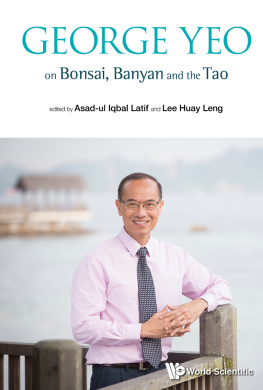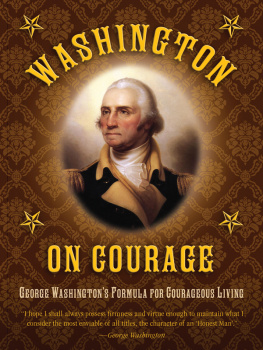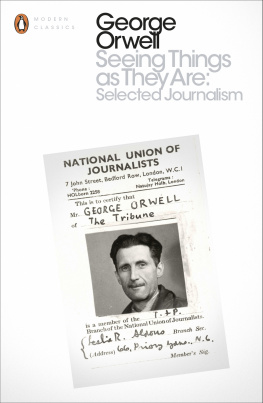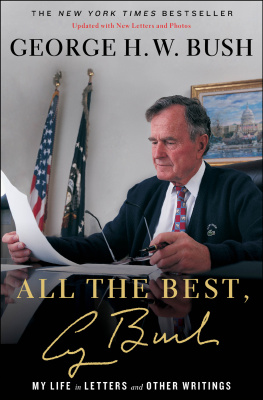GEORGE YEO
on Bonsai, Banyan and the Tao
GEORGE YEO
on Bonsai, Banyan and the Tao
edited by
Asad-ul Iqbal Latif and Lee Huay Leng

Published by
World Scientific Publishing Co. Pte. Ltd.
5 Toh Tuck Link, Singapore 596224
USA office: 27 Warren Street, Suite 401-402, Hackensack, NJ 07601
UK office: 57 Shelton Street, Covent Garden, London WC2H 9HE
Library of Congress Cataloging-in-Publication Data
Yeo, George Yong-Boon, author.
[Speeches. Selections.]
George Yeo on bonsai, banyan and the tao / edited by Asad-ul Iqbal Latif and Lee Huay Leng.
pages cm
ISBN 978-9814518697 (hardcover : alk. paper)
1. Singapore--Politics and government--1990 2. Singapore--Foreign relations. 3. Singapore--Civilization. 4. Southeast Asia--Strategic aspects. I. Asad Latif, editor. II. Li, Huiling, 1971 editor. III. Title.
DS610.73.Y46A5 2014
082--dc23
2014018387
British Library Cataloguing-in-Publication Data
A catalogue record for this book is available from the British Library.
Front cover photo by Ray Chua
First published 2015
Reprinted 2015
Copyright 2015 by George Yeo
All rights reserved.
Printed in Singapore
to my wife
Jennifer
FOREWORD
by Amartya Sen
This is a wonderful book by one of the foremost statesmen and social thinkers of our time. Though the themes covered display a huge variety in this wide-ranging collection of essays and speeches by George Yeo, there is a foundational interest that motivates his illuminating and powerful reflections. This relates to a unifying concern about the exceptionally large possibilities of Asias place in global relations. Some of Asias rich possibilities have been realised, but others remain to be fully grasped yet, and Yeo is particularly interested in analysing how the potentials can be more comprehensively harvested.
One reason why the city-state of Singapore often seems to be punching well above its weight in world affairs, aside from its remarkable material and economic success, is the presence of cerebral and articulate leaders who are able to speak with clarity and focus. Going beyond their understanding of the limitations and possibilities of their own country in the relentlessly changing world scenario, leaders like George Yeo invite us to join them in the global dialogue about Asia. This book gives plentiful examples of how pertinent and enlightening Yeos intellectual investigations have been.
George Yeo distinguished himself as a scholar at Cambridge, as an officer who rose swiftly through the ranks of the military, and as a politician whose ministerial portfolios ranged from Arts and Health to Foreign Affairs and Trade and Industry. In each of those roles, he sought to combine the calling of the intellectual, whose primary and central contribution tends to lie in unearthing the truth, and in clarifying how it influences what we have reason to do. One of Yeos basic commitments is to draw attention consistently to the need to act with a sense of purpose, drawing on scrutinised knowledge, amidst continuous change in the world around us. Yeos essays on culture, in particular, deserve close reading because he discerns in that realm of human agency both continuities and disruptions that transcend the day-to-day demands of our economic lives forceful as they are.
Speaking more personally, I have had the great pleasure of working with George Yeo during the long drawn-out but ultimately fruitful Nalanda project. His belief in the recreation of an ancient university more than six hundred years older than the first European university (in Bologna) which embodied the regions intellectual interaction and cross-border collaboration brought out to me Yeos strong faith in a future that can draw on Asias pre-colonial past and produce something new and outstanding from which the contemporary world in Asia as well as elsewhere can greatly benefit. Yeo has made an exceptional contribution in giving shape to the vision behind the new Nalanda University, combining ancient understanding and wisdom with modern knowledge and science. I feel very fortunate in having developed a strong friendship with a person whose remarkable qualities I greatly admire, and whose far-reaching reflections I have enormous pleasure in presenting to the reading public across the world.
Amartya Senis Thomas W. Lamont University Professor, and Professor of Economics and Philosophy, at Harvard University and was until 2004 the Master of Trinity College, Cambridge. Earlier on he was Professor of Economics at Jadavpur University Calcutta, the Delhi School of Economics, and the London School of Economics, and Drummond Professor of Political Economy at Oxford University.
Amartya Sens awards include Bharat Ratna (India); Commandeur de la Lgion dHonneur (France); the National Humanities Medal (USA); and the Sveriges Riksbank Prize in Economic Sciences in memory of Alfred Nobel (Sweden).
FOREWORD
by Wang Gungwu
When I came to Singapore in January 1996, I was involved with three agencies that, for me, marked a new era for the city-state. I learnt that all three were initiated by George Yeo who had become Minister for Information and the Arts in 1991 at the age of 36, one of the youngest ministers in the Singapore Cabinet. The three agencies were the National Arts Council, the National Library Board and the National Heritage Board. The first was established in 1991, the second came out of a Library Review in 1992 and the third followed in 1993. In three successive years, he started Singapore on a path that has now enlivened the cultural life of its people beyond recognition.
That was only a beginning. Yeo was the moving force behind several other major projects all aimed at helping Singapore to reach out and connect with a fast-changing world. One of his messages was particularly clear: to meet the challenges of its future, its people must take heed of its rich past. When he went on to be Minister for Trade and Industry and then for Foreign Affairs, that message became broader and deeper. He brought it with him to enlarge Singapores influence in the region and elsewhere at a time when major economic and political changes were taking place, notably the financial crisis of 1998 and the remarkable rise of China into the 21st century.
George Yeo was a brilliant student and a successful soldier before becoming a popular and effective politician. Since 2011, he has embarked on yet another career as a top business executive. His admirers, who have followed his public career, know how much he has achieved but I doubt if many were aware of the full range of his interests and the way he has thought about so many areas of life. This collection of his speeches shows us what led him to the life of public service and what he wanted to bring to that commitment.
Every reader will take away something from the collection. For me, I found that two words capture some of the recurring themes in his thinking: balance and trust. With the idea of balance, it reminds me of the Chinese word quanheng ( ), a concept that guides his understanding of the past in the present. The notion of trust, on the other hand, permeates his thinking about what binds a state and its people and knits the cohesion that open global societies need more than ever.
), a concept that guides his understanding of the past in the present. The notion of trust, on the other hand, permeates his thinking about what binds a state and its people and knits the cohesion that open global societies need more than ever.
George Yeos determination to see Nalanda University revived symbolises the practice of balance best. In that ancient institution, he saw a deep faith linked with a universal openness. Rebuilding it in the 21st century marks a marriage of the traditional with the modern global that, at the same time, can bring Asia and Europe, China and India and the eastern and western halves of Asia together. The politician in him also saw a role for Nalanda to imagine a new sense of region that could lift Asia to a higher realm of consciousness.
Next page














 ), a concept that guides his understanding of the past in the present. The notion of trust, on the other hand, permeates his thinking about what binds a state and its people and knits the cohesion that open global societies need more than ever.
), a concept that guides his understanding of the past in the present. The notion of trust, on the other hand, permeates his thinking about what binds a state and its people and knits the cohesion that open global societies need more than ever.